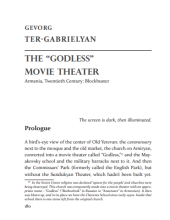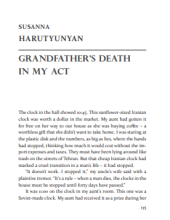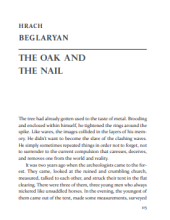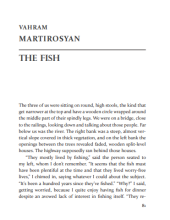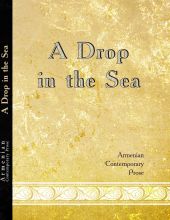 |
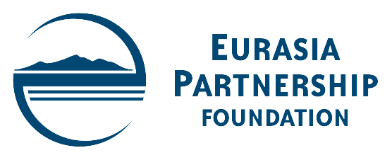 |
Eurasia Partnership Foundation, Embassy of Sweden in Yerevan and SIDA are implementing a new Civil Society Support for Ensuring Impact on Reforms (CS Support) project, which aims to support civil society in Armenia through building its capacities and strategic positioning to successfully address the needs of the post-revolutionary and post-war situation in the areas of Human Rights, Anti-Discrimination and Non-Violence, Anti-Corruption and Conflict of Interest, Environment, Urban Planning and Development, etc.
The goal of the CS Support project is to support civil society in Armenia through building its capacities and strategic positioning to successfully address the needs of the post-revolutionary situation in the areas of Human Rights, Anti-Discrimination and Non-Violence, Anti-Corruption and Conflict of Interest, Environment, Urban Planning and Development, etc. The proposed duration of the project is 24 months․
The CS Support project consists of three main components:
Open door and invited grant projects
EPF’s open door grant projects will allow for CSOs to effectively engage in and contribute to the development of the democratic reform agenda (in areas of civic education, public awareness, human rights, grassroots initiatives, government monitoring, etc.). Around 20-30 grant projects are expected to be funded in frames of unsolicited (open door) grants.
Invited grants are designed for EPF InfoTun Network that includes 10 prominent regional CSOs which act as local resource, training and initiative centers. Through supporting the InfoTun Network, EPF will expand the framework of capacity building activities and support to local initiatives throughout Armenia. This will promote the forming of positive local participatory precedents that will provide the project with additional outcomes to capitalize on, such as piloted and functioning mechanisms of work between the CSOs and local authorities, successful models of community mobilization, etc.
Targeted trainings and the exchange of best practices with foreign counterparts
4 sectoral, 4 organizational capacity trainings (8 in total) will be organized for approximately 120 CSO representatives. The capacity building events will involve both grant recipients and wider circles of CSOs. These events will focus primarily on the development of sectoral expertise of the beneficiary CSOs, as well as on such skills as research methods, monitoring, product development, external communication and advocacy and will be aimed at properly developing, formulating and communicating project products and aiming at delivering the end-result of а positive change.
Study trips to Sweden and one of the Baltic states
10-12 members of the beneficiary CSOs will be selected from both the grantees and the trainees, and EPF will conduct two study tours with 4-6 participants each to Sweden and one of the Baltic states, aimed at familiarizing them with positive experience of CSO functioning.
In the case of Baltic states, the e-participation and e-governance tools (Estonia), advocacy campaigns and policy development (Lithuania) will be in the focus, while in the case of Sweden major areas of interest will be the work with the constituencies, gender mainstreaming and rights-based approach. EPF will form a thematically and geographically diverse group of CSO member multipliers to make sure that the gained knowledge is disseminated throughout the civil society back in Armenia.
Networking and Advocacy
This line of activities will support the project beneficiaries to properly communicate the results of their activities, submit recommendations to decision-makers, organize public campaigns to advocate for reforms, engage in long-term dialogue with relevant institutions.
EPF will work with a network of grantees and will support them in their cooperation and joint advocacy efforts. This component along with the grant pool will ensure that the results of the projects are sustainable, and are being followed up through decisions and policies adopted at various levels. The circulation of the results of the projects among various beneficiaries within the network and beyond will ensure that they are accessible for and capitalized upon by wider groups of stakeholders.Improved capacities and synchronization of CSO activities will result in an increased quality of civic engagement in the national development processes, as well as will allow CSOs to address issues of particular importance. This will be visible in both the increase of the number of citizens involved in the activities of the formal and non-formal civil society, and the improved quality of products developed by CSOs. The civil society will also increase its influence on public narratives in terms of prioritization; will complement the process with evidence-based content, and enrich public discourse with opinions of knowledgeable and responsible citizens who will demonstrate improved critical thinking skills and a better understanding of the major trends and developments in Armenia and in the world.
"Civil Society Support for Ensuring Impact on Reforms” project is implemented by Eurasia Partnership Foundation with the support of Swedish Government.

